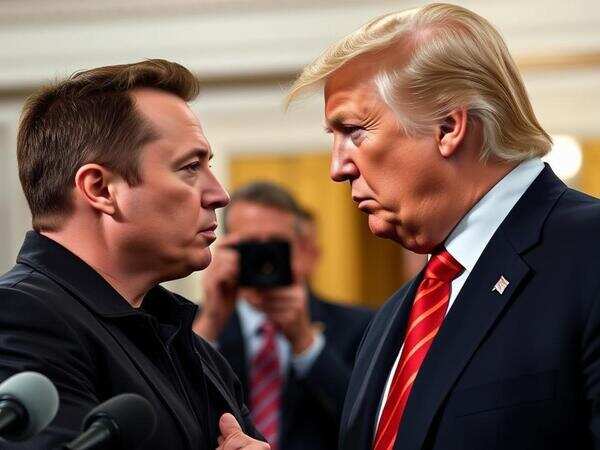A once-formidable alliance between President Donald Trump and billionaire entrepreneur Elon Musk has disintegrated into a public feud, marked by mutual accusations, threats to sever government contracts, and calls for impeachment.
The conflict ignited when Musk vehemently criticised Trump’s flagship tax and spending proposal, the “One Big Beautiful Bill Act,” labelling it a “disgusting abomination” and asserting he was never consulted on its provisions. Musk contended that the bill would exacerbate the federal deficit by trillions and eliminate key incentives for electric vehicles, directly impacting Tesla’s interests.
Trump responded by expressing disappointment in Musk, alleging he had dismissed the tech mogul from his advisory role due to erratic behaviour. He further threatened to terminate federal subsidies and contracts with Musk’s companies, including Tesla and SpaceX, suggesting this move would save “billions and billions of dollars” in the federal budget.
The market reacted swiftly; Tesla’s shares plummeted by 14%, erasing approximately $150 billion in market value—the company’s most significant single-day loss.
Musk escalated the dispute by endorsing a social media post advocating for Trump’s impeachment and suggesting Vice President JD Vance as a replacement. He also insinuated, without providing evidence, that Trump was implicated in unreleased files related to Jeffrey Epstein, accusing the administration of withholding these documents.
In retaliation, Trump accused Musk of suffering from “Trump derangement syndrome” and reiterated his intent to cut off government contracts with Musk’s enterprises. Musk countered by threatening to decommission SpaceX’s Dragon spacecraft, vital for NASA missions, though he later retracted this statement following public concern.
The fallout has significant implications for both political and business landscapes. Musk, who contributed nearly $300 million to Republican campaigns in the last election cycle, claimed that Trump’s re-election was largely due to his support. The rupture raises questions about future collaborations and the stability of federal partnerships with Musk’s companies.
Amid the escalating tensions, some voices have called for reconciliation. Hedge fund manager Bill Ackman suggested that both parties “cool off and take a step back,” to which Musk responded, “Good advice. Ok, we won’t decommission Dragon.”




 Pro-Khalistan Slogans During Operation Blue Star Anniversary
Pro-Khalistan Slogans During Operation Blue Star Anniversary 